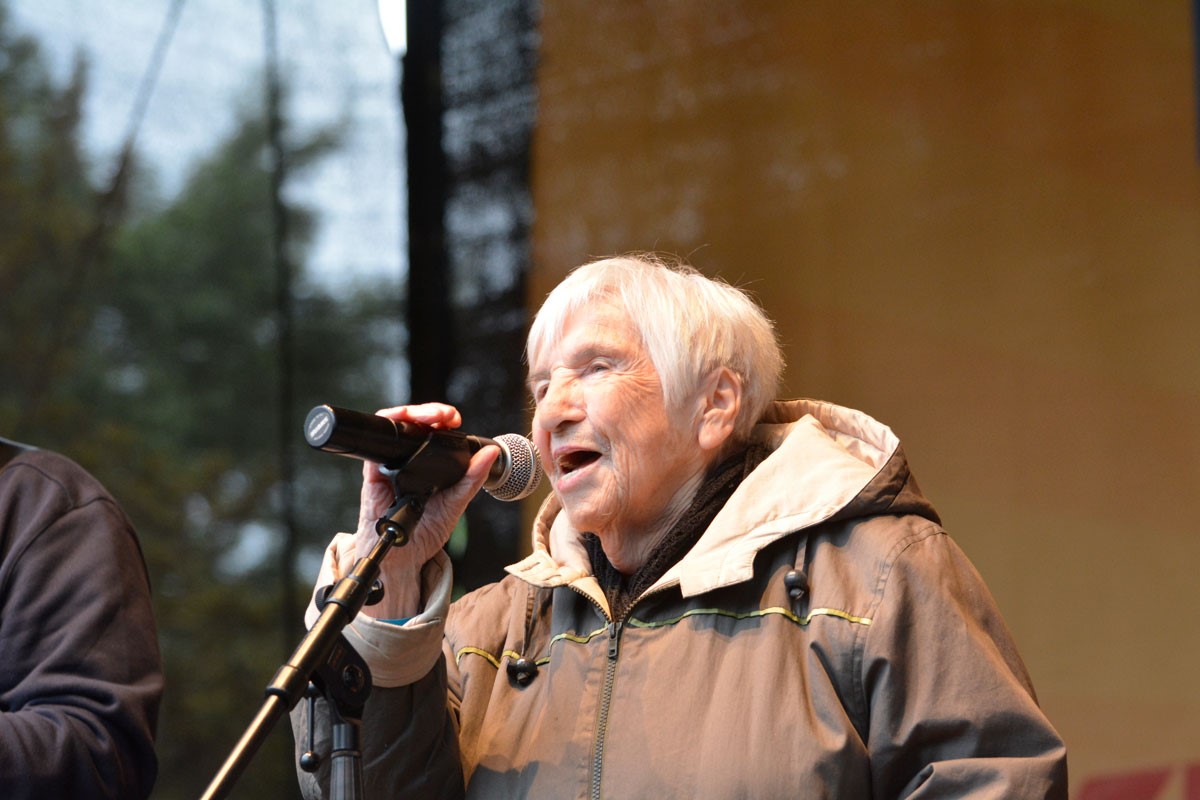Esther Bejarano, a survivor of the Auschwitz death camp who devoted much of her life to the fight against antisemitism, fascism and racism – often through the power of music – has died at the age of 96. Bejarano died peacefully in the early hours of Saturday, July 10, in Hamburg, according to the Zo Haderech news website.
Born in 1924, the daughter of Jewish cantor Rudolf Loewy in what was then French-occupied Saarlouis, the family later moved to Saarbruecken, where Bejarano enjoyed a musical and sheltered upbringing until the Nazis came to power and the city was returned to Germany in 1935. Her parents and sister Ruth were eventually deported and killed by the German authorities, while Bejarano had to perform forced labor before being sent to Auschwitz in 1943. There, she volunteered to become a member of the girls’ orchestra, playing the accordion every time trains full of Jews from across Europe arrived.

Esther Bejarano during the 2018 Festival of the German Communist weekly Unsere Zeit (Photo: Unsere Zeit)
Bejarano emigrated to Palestine after the war in 1945 and married Nissim Bejarano, a Communist of Bulgarian origin. In Israel, Esther was member of the reputed workers’ Ron Choir created by the Communist Party of Israel. The couple had two children, Edna and Yoram, before returning to Germany in 1960 because of their opposition the pro-imperialist policy of the Ben-Gurion government. After once again encountering neo-Nazis and open antisemitism in Germany, Bejarano decided to become politically active, co-founding the Auschwitz Committee in 1986 to give survivors a platform for their stories.
She teamed up with her children to play Yiddish melodies, anti-fascist and Jewish resistance songs in a Hamburg-based band they named Coincidence, and also with hip-hop group Microphone Mafia to spread an anti-racism message to German youth. While addressing young people in Germany and beyond, Bejarano would say, “You are not guilty of what happened back then. But you become guilty if you refuse to listen to what happened.”


